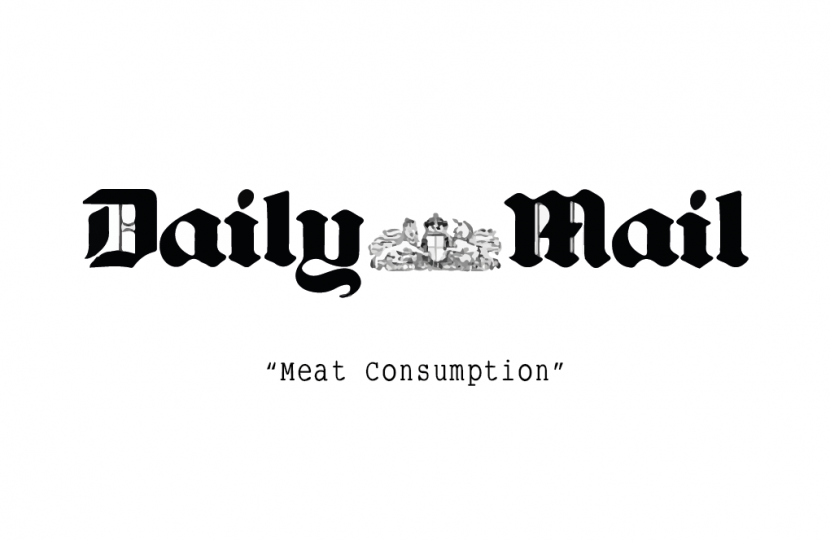
An article appeared in the Daily Mail on the 16th April on plans by public sector caterers to reduce meat in their menus by 20% which they claim will help address climate change.
I wanted to make my view clear:
The binary assertion that replacing meat with plant alternatives leads inevitably to a reduction in carbon emissions is wrong. The issue is far more complex. The carbon impact of food, whether meat or vegetables, depends on its method of production.
Consumers should be reassured that red meat produced in the UK is amongst the most sustainable in the world. Well managed livestock farming delivers important environmental benefits, including conservation of wildlife habitats and keeping carbon locked in pasture. Moreover, UK farmers have ambitious plans to bring down emissions further, led by the National Farmers Union, NFU Scotland, the Farmers’ Union of Wales, and the Ulster Farmers’ Union.
This is in sharp contrast to farming in many other countries which can lead to deforestation and environmental damage. For example, substituting grass-fed UK beef and lamb with avocados from Peru or South Africa, or sugar snap peas flown in from Kenya, could actually increase carbon impacts because of the methods used to produce and transport such foods.
If public sector caterers want to offer more climate-friendly menus, their best option is to buy local and buy British.
Original article - https://www.dailymail.co.uk/sciencetech/article-7917361/Britons-slash-meat-consumption-20-cent-reach-net-zero-emissions-2050.html

